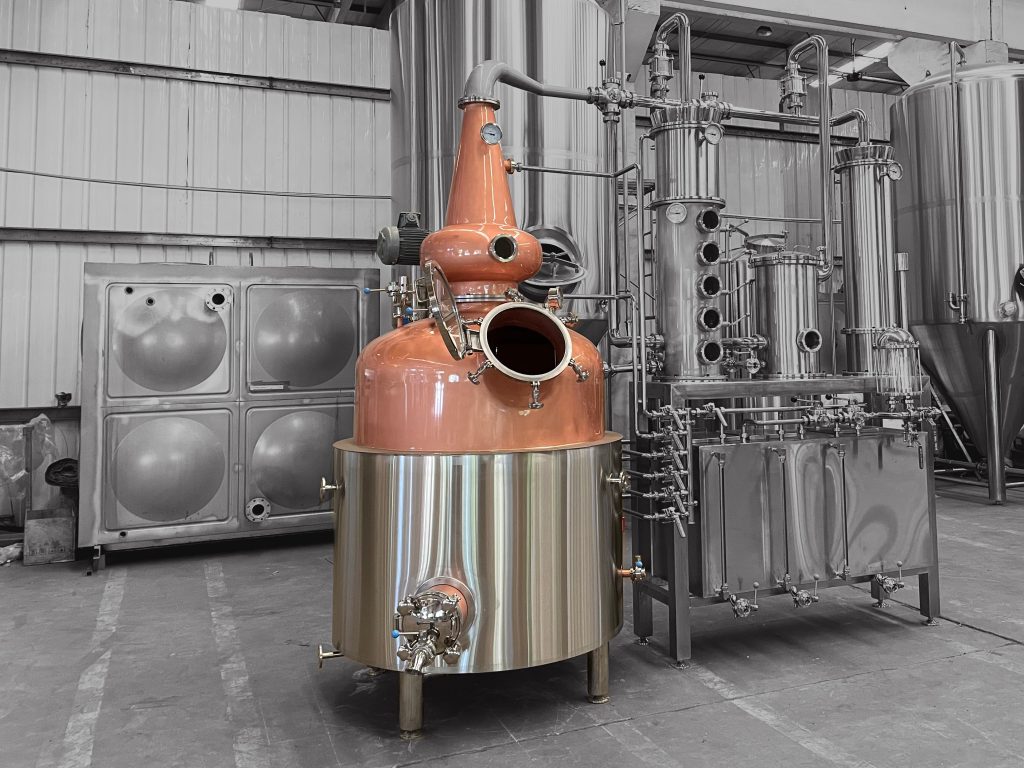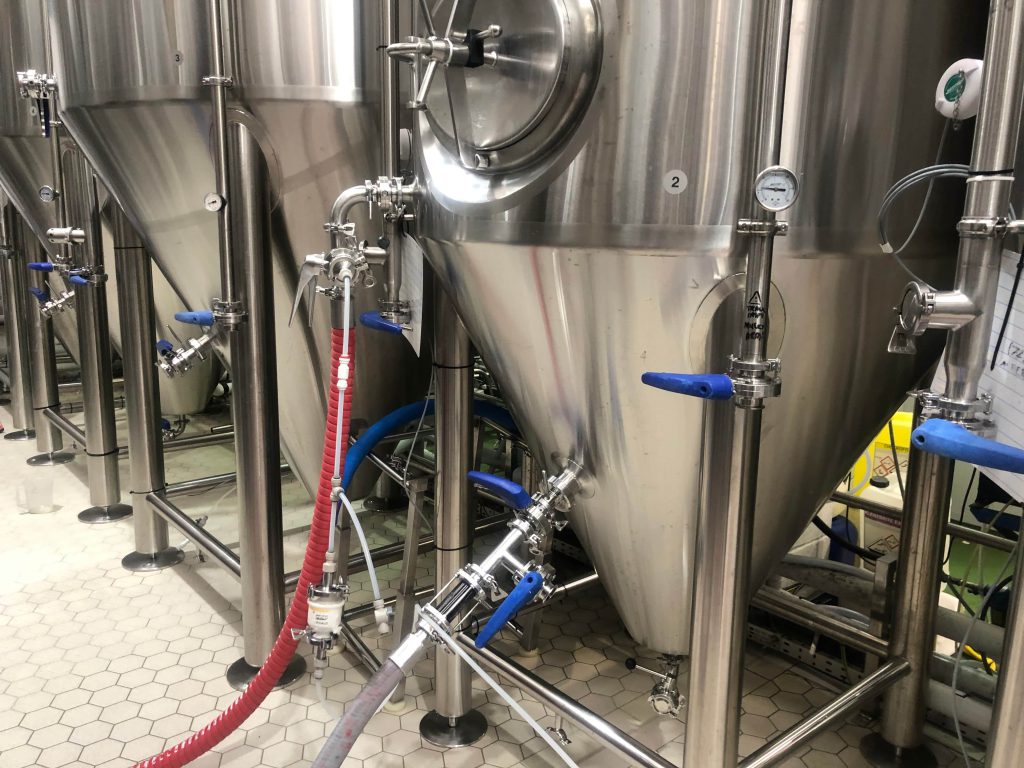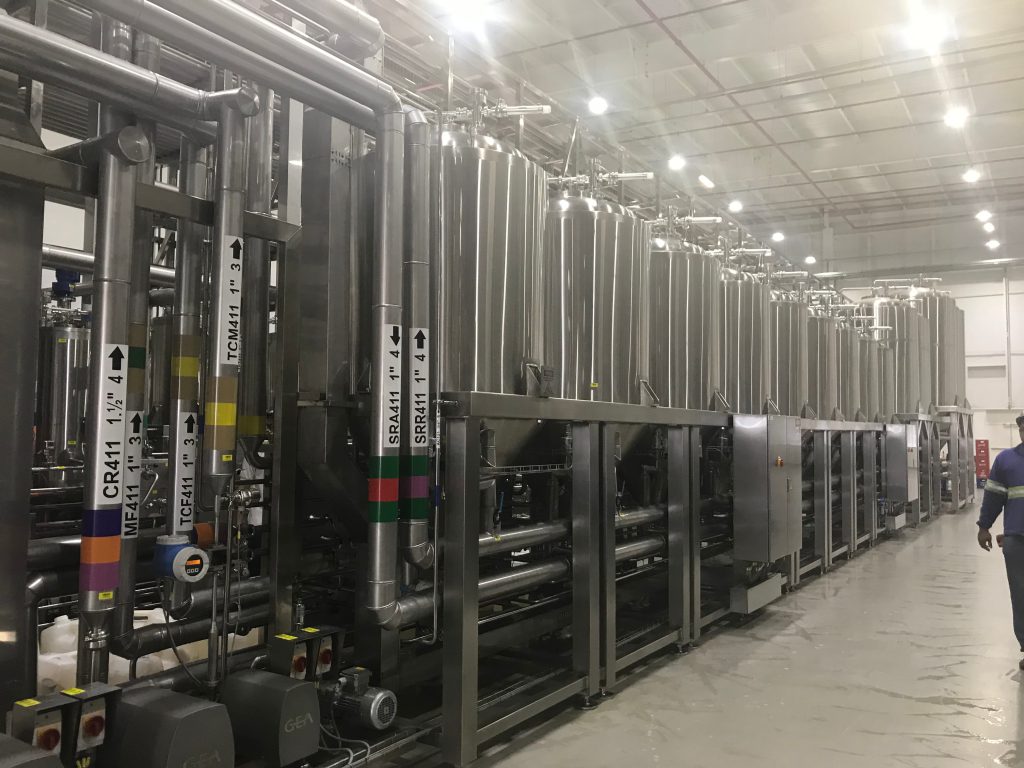Introduction

The craft beer industry is booming, and with it, the demand for high-quality beer machinery. Whether you’re a seasoned brewer looking to upgrade your equipment or a newcomer venturing into the world of beer production, understanding the essential beer machinery is crucial for maximizing output and ensuring consistent quality. This guide will delve into the critical components of a successful brewery setup, from brewing to packaging, focusing on how each piece of beer machinery contributes to efficient operations and superior beer production. We will provide information for those who are looking for beer machinery, and we will talk about the best beer machinery that could be used. Investing in the right beer machinery can significantly impact the final product, influencing both flavor and overall production efficiency.
Understanding Core Beer Machinery Components
The journey from raw ingredients to bottled beer involves a series of intricate processes, each reliant on specific beer machinery. Grinding malt, mashing, lautering, boiling, fermenting, and packaging are all critical steps that require specialized equipment. The appropriate beer machinery ensures that each step is performed accurately and efficiently. Selecting the right equipment requires a deep understanding of each stage’s requirements and how they impact the final beer quality. Furthermore, the efficiency of the beer machinery directly translates to the brewery’s production capacity and profitability.
Malt Milling: The Foundation of Brewing
The process begins with malt milling, where grains are crushed to the ideal consistency. The malt mill is a crucial piece of beer machinery, as it affects the extract efficiency and the quality of the wort. A well-maintained and properly calibrated malt mill ensures consistent particle size, which is essential for optimal sugar extraction during mashing. Choosing a mill with adjustable rollers allows for fine-tuning the grind, accommodating various malt types and brewing styles. The consistency of the grind directly impacts the efficiency of the mashing process, which in turn affects the final beer’s flavor profile.
Mashing and Lautering Equipment: Extracting Sweet Wort
Mashing involves mixing the milled malt with hot water to convert starches into fermentable sugars. The mash tun, a key piece of beer machinery, maintains precise temperatures for this enzymatic process. Lautering, which follows mashing, separates the sweet wort from the spent grains. The lauter tun, or mash filter, is beer machinery that is essential for this separation, ensuring a clear wort for the next stage. Efficient temperature control within the mash tun ensures optimal enzyme activity, leading to higher sugar conversion. The design of the lauter tun, including its false bottom and sparging system, determines the clarity and yield of the wort.
Boiling and Whirlpooling: Essential Processes
The wort is then boiled in a brew kettle, another indispensable piece of beer machinery. During this stage, hops are added for bitterness, flavor, and aroma. After boiling, the whirlpool separates the trub (protein and hop residue) from the clear wort. Efficient boiling and whirlpooling are crucial for achieving the desired beer characteristics. The brew kettle’s heating system and design affect the consistency of the boil and the isomerization of hop alpha acids. A well-designed whirlpool tank ensures effective separation of trub, leading to a cleaner wort and improved beer clarity.
Fermentation Tanks: Where Magic Happens
Fermentation tanks are the heart of the brewery, where yeast converts sugars into alcohol and carbon dioxide. These beer machinery vessels maintain precise temperatures and pressures, allowing for controlled fermentation. Different tank designs, such as cylindroconical tanks, cater to various brewing styles and production volumes. The choice of tank material, such as stainless steel, ensures durability and ease of cleaning, crucial for maintaining hygiene. The precise temperature control capabilities of modern fermentation tanks allow brewers to fine-tune the fermentation process, resulting in consistent and high-quality beer.
Filtration and Clarification: Achieving Clarity and Stability
Filtration and clarification processes enhance the beer’s clarity and stability. Filtration systems, including diatomaceous earth filters or membrane filters, remove unwanted particles. Clarification techniques, such as fining agents or centrifuges, further improve the beer’s appearance and shelf life. Selecting the appropriate filtration system depends on the desired level of clarity and the scale of production. Centrifuges offer a faster and more efficient alternative to traditional filtration methods, reducing processing time and waste.
Packaging Equipment: Bottling, Canning, and Kegging
Packaging is the final stage, where beer is transferred into bottles, cans, or kegs. Bottling and canning lines, as well as kegging systems, are essential beer machinery. These systems ensure accurate filling, sealing, and labeling, maintaining the beer’s quality and presentation. Automated packaging lines increase production speed and reduce labor costs, improving overall efficiency. Investing in high-quality packaging equipment ensures that the beer maintains its quality and freshness throughout its shelf life.
Essential Beer Machinery Table
| Component | Function | Key Considerations |
|---|---|---|
| Malt Mill | Crushes grains for optimal sugar extraction | Consistent particle size, durable construction |
| Mash Tun | Maintains temperature for starch conversion | Temperature control, insulation, capacity |
| Lauter Tun | Separates sweet wort from spent grains | Filtration efficiency, flow rate, design |
| Brew Kettle | Boils wort and adds hops | Heating efficiency, material, size |
| Whirlpool | Separates trub from wort | Tangential inlet, settling time, design |
| Fermentation Tanks | Converts sugars into alcohol and CO2 | Temperature control, pressure rating, material |
| Filtration System | Removes unwanted particles from beer | Filtration method, flow rate, maintenance |
| Bottling Line | Fills and seals bottles | Filling accuracy, speed, automation |
| Canning Line | Fills and seals cans | Seaming quality, speed, fill level control |
| Kegging System | Fills and seals kegs | Cleaning efficiency, filling speed, keg type compatibility |
Optimizing Beer Machinery for Maximum Output
Maximizing output requires a holistic approach, considering not just the individual pieces of beer machinery but also their integration within the brewery. Regular maintenance, proper calibration, and efficient workflow design are crucial for achieving peak performance. Additionally, investing in automated beer machinery can significantly increase production capacity and reduce labor costs. Implementing a well-planned layout can minimize bottlenecks and streamline the brewing process. Regular calibration of sensors and controllers ensures accurate readings and consistent performance.
Maintenance and Troubleshooting of Beer Machinery
Proper maintenance is paramount to ensure the longevity and efficiency of your beer machinery. Regular cleaning, lubrication, and inspection can prevent costly breakdowns and downtime. Troubleshooting common issues, such as leaks, blockages, and temperature fluctuations, requires a thorough understanding of each piece of equipment. Developing a comprehensive maintenance schedule can help prevent unexpected breakdowns. Investing in training for brewery staff on proper maintenance procedures can improve overall equipment lifespan.
Choosing the Right Beer Machinery Supplier

Selecting a reliable supplier is crucial for ensuring the quality and performance of your beer machinery. Look for suppliers with a proven track record, comprehensive warranties, and excellent customer support. Consider factors such as equipment quality, price, delivery time, and after-sales service. A reputable supplier will offer ongoing support and technical assistance, ensuring smooth operation of your brewery. Thoroughly researching potential suppliers and requesting references can help you make an informed decision.
Conclusion
Investing in high-quality beer machinery is essential for maximizing output and producing exceptional beer. Understanding the function and maintenance of each piece of equipment, from malt milling to packaging, is crucial for efficient brewery operations. By choosing reliable suppliers and implementing proper maintenance protocols, brewers can ensure consistent quality and optimize their production processes. If you are looking to purchase beer machinery, or if you have any questions, please contact us today. We are here to help you get the best equipment for your brewery.
FAQ
What are the essential pieces of beer machinery for a small brewery?
Essential equipment includes a malt mill, mash tun, lauter tun, brew kettle, fermentation tanks, and packaging equipment. These components form the basic infrastructure for beer production.
How often should beer machinery be maintained?
Regular maintenance, including cleaning and inspection, should be performed daily, weekly, and monthly, depending on the equipment. Consistent maintenance schedules prevent equipment failures.
What are the benefits of automated beer machinery?
Automation increases production capacity, reduces labor costs, and improves consistency. Automated systems can handle repetitive tasks with greater accuracy.
How do I choose the right fermentation tanks?
Consider factors such as tank size, material, pressure rating, and temperature control capabilities. The specific requirements of your brewing style and production volume will determine the ideal tank specifications.

